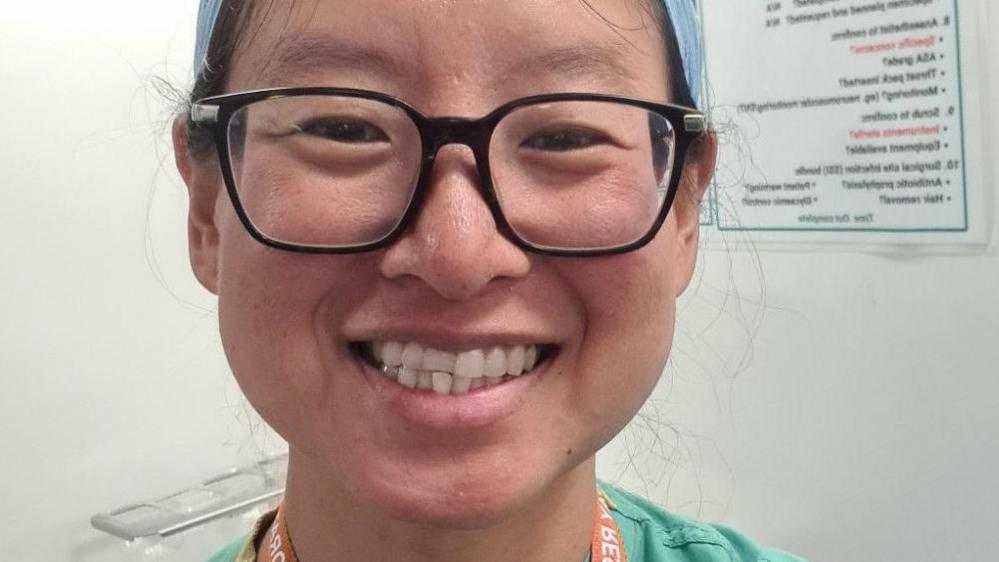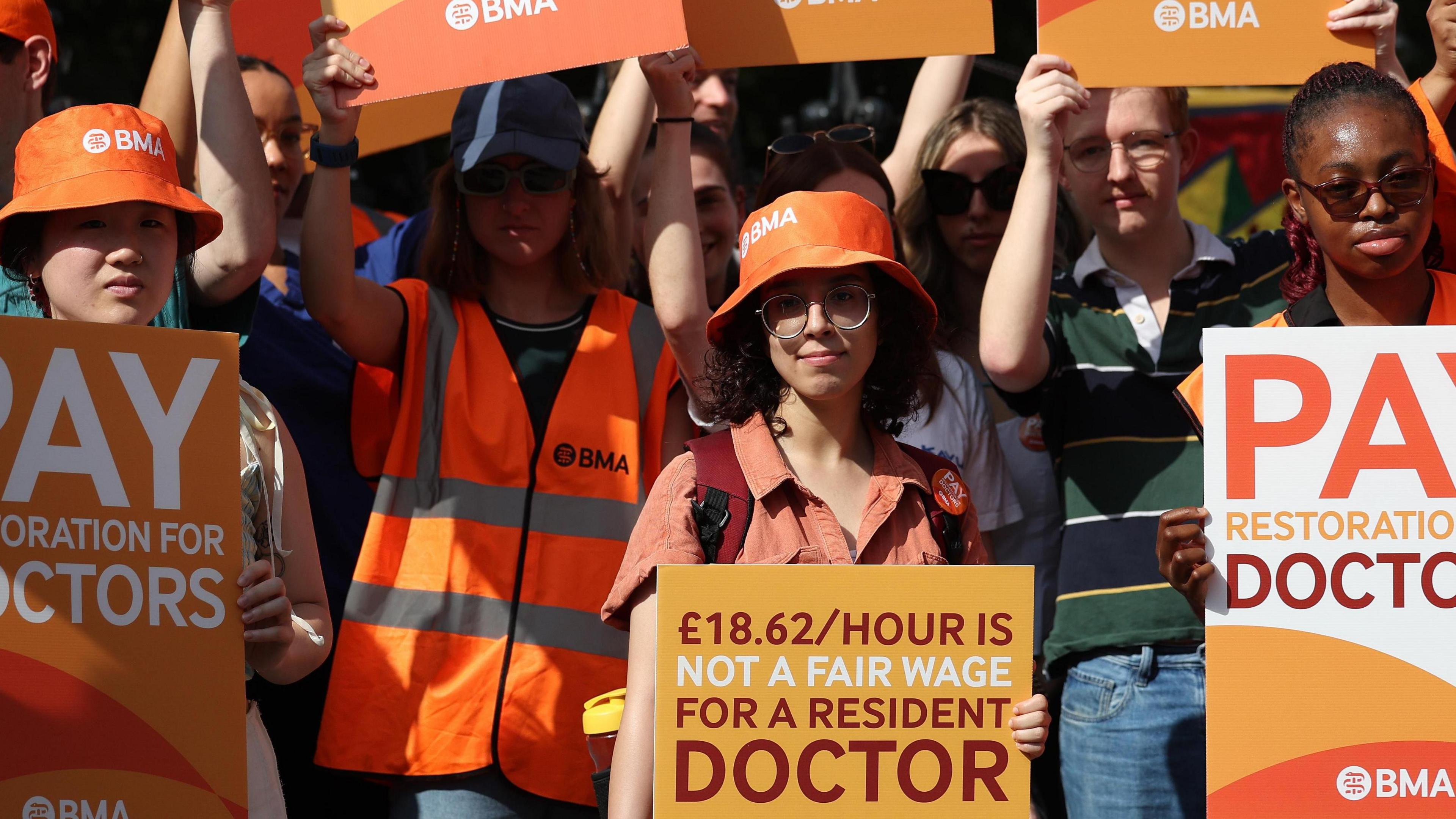Resident doctors begin strike in dispute over pay
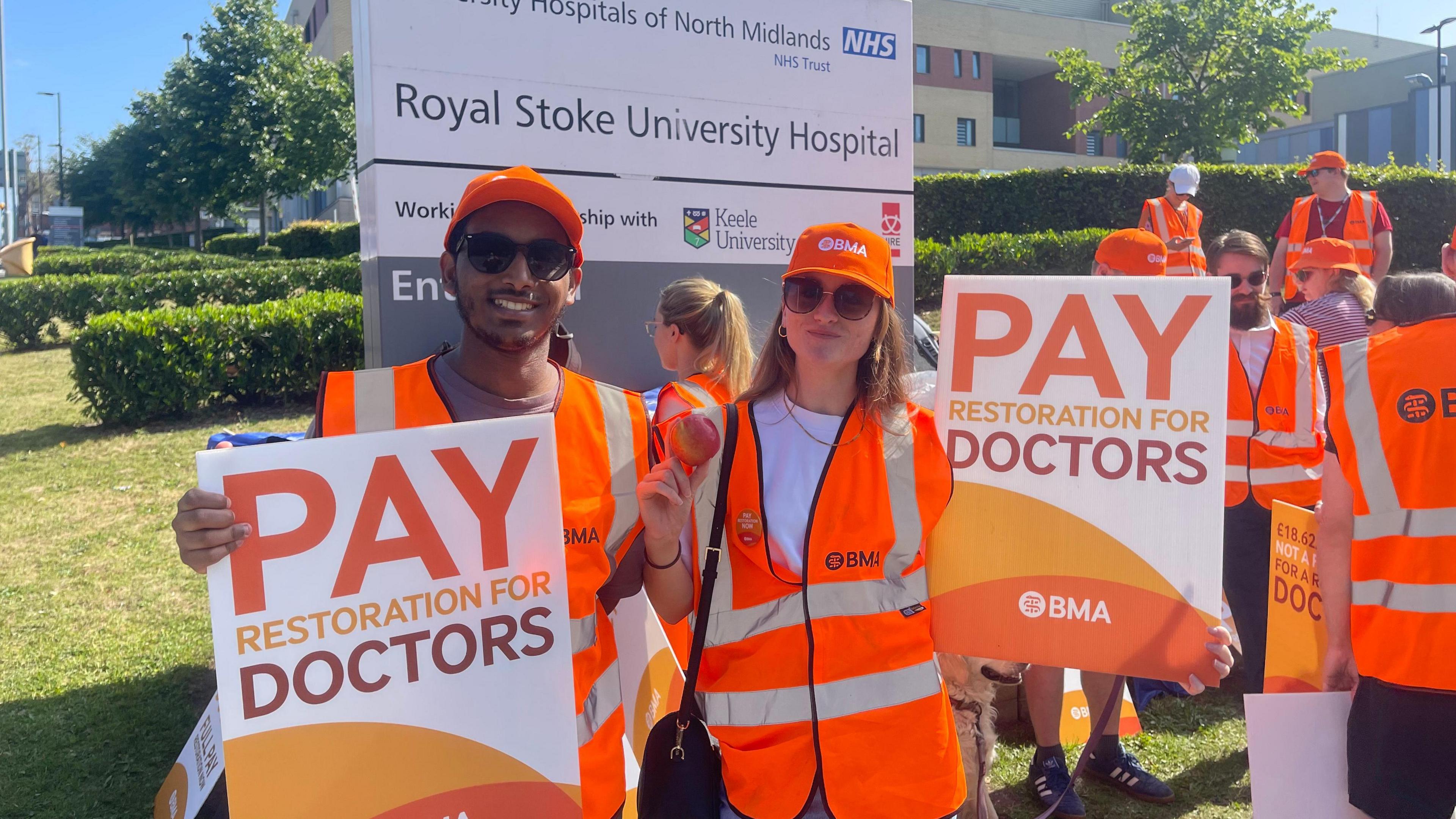
Industrial action began after the government and British Medical Association failed to reach an agreement over pay
- Published
Doctors across the West Midlands have begun five days of strike action over a pay dispute with the government.
Dozens of resident doctors, previously known as junior doctors, took to the picket line outside Queen Elizabeth Hospital in Birmingham on Friday.
The government awarded doctors a 5.4% pay rise for this financial year, but the British Medical Association (BMA), which organised the walkout, said wages were still about 20% lower in real terms than in 2008.
Dr Ben Cowdry, 25, told the BBC working conditions were "poor" and that doctors regularly had to "stay after hours".
"These life and death decisions we are making, yes they are part of the job but we deserve to be respected and remunerated appropriately for that, and £23 an hour is not an unreasonable ask," he said.
The walkout by resident doctors began at 07:00 BST on Friday and is set to last until 07:00 on 30 July.
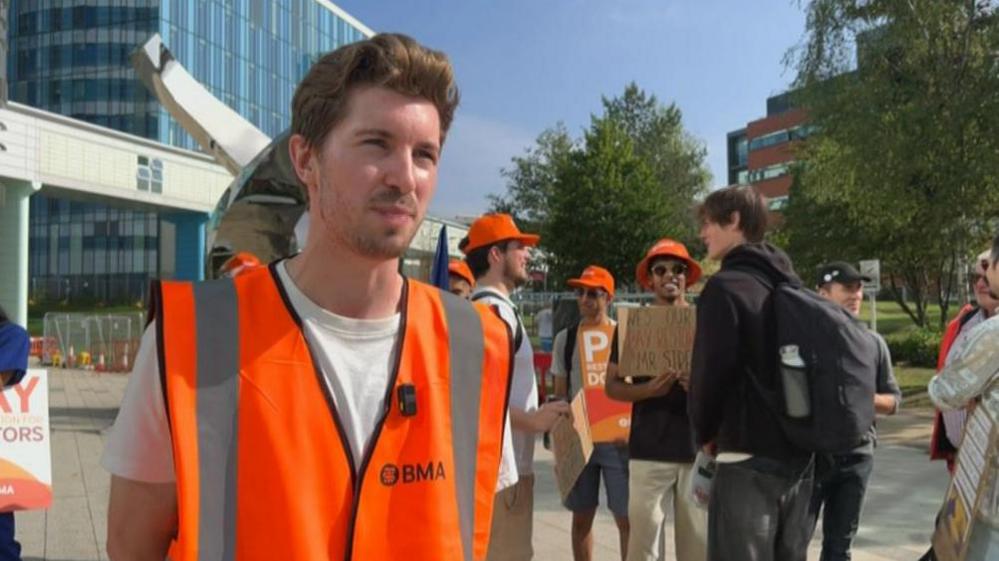
At the picket line, Dr Ben Cowdry said doctors regularly had to "stay after hours"
At New Cross Hospital in Wolverhampton and Cannock Chase Hospital, bosses said there had been 236 appointment cancellations for patients, 110 of which were operations.
Consultants and senior doctors are covering for resident doctors, who are striking for the 12th time over pay
Dr Brian McKaig, chief medical officer at the Royal Wolverhampton NHS Trust, said they had been through a "number of strikes before" and the hospital needed to prioritise emergency medical care.
"In terms of planning, we need to first of all prioritise urgent and emergency care and obviously time critical work, such as cancer work and priority operations," he said.
"Once we've been able to cover those, we then see what activity we can continue with but inevitably, with the industrial action we do need to cancel some activity."
One patient, Dave Williams, who was admitted to the hospital with heart problems, said he agreed with the strike.
"They're not paid enough," he told the BBC.
"I mean nurses... and doctors, if they all downed tools totally and said right we want more money, the government would have to pay them."
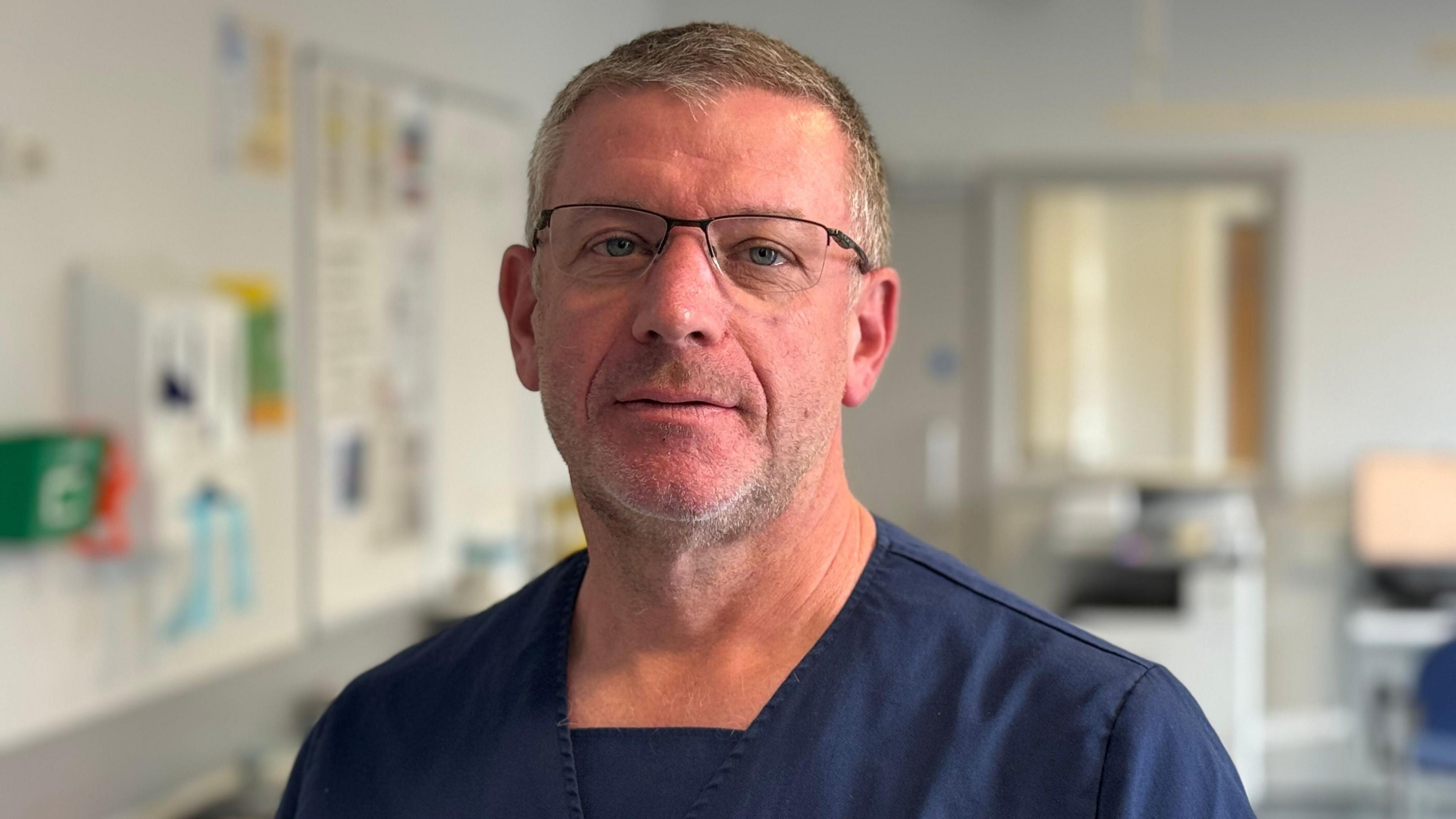
Dr Brian McKaig, chief medical officer at the Royal Wolverhampton NHS Trust, said they had been through a 'number of strikes before'
In Stoke-on-Trent, about 20 BMA members stood at the junction of the A34 and the hospital with placards.
Dr Bradley Allmond, a resident at Royal Stoke University Hospital, told BBC Radio Stoke that the industrial action was about pay restoration.
"We have been trying to get full pay restoration and that's been our one goal, very very clear, the entire time," he said.
"Our job is not an easier than it was in 2008, so why should we be paid any less?" he asked.
Dr Allmond said that doctors on strike wanted to work hard to clear waiting lists for patients.
"We want to be here, we want to work hard, we want to clear down those waiting lists," he said.
"Things that are stopping us are the people who are running and organising the NHS, that's the government, don't let them blame us. We are staff members turning up to work."
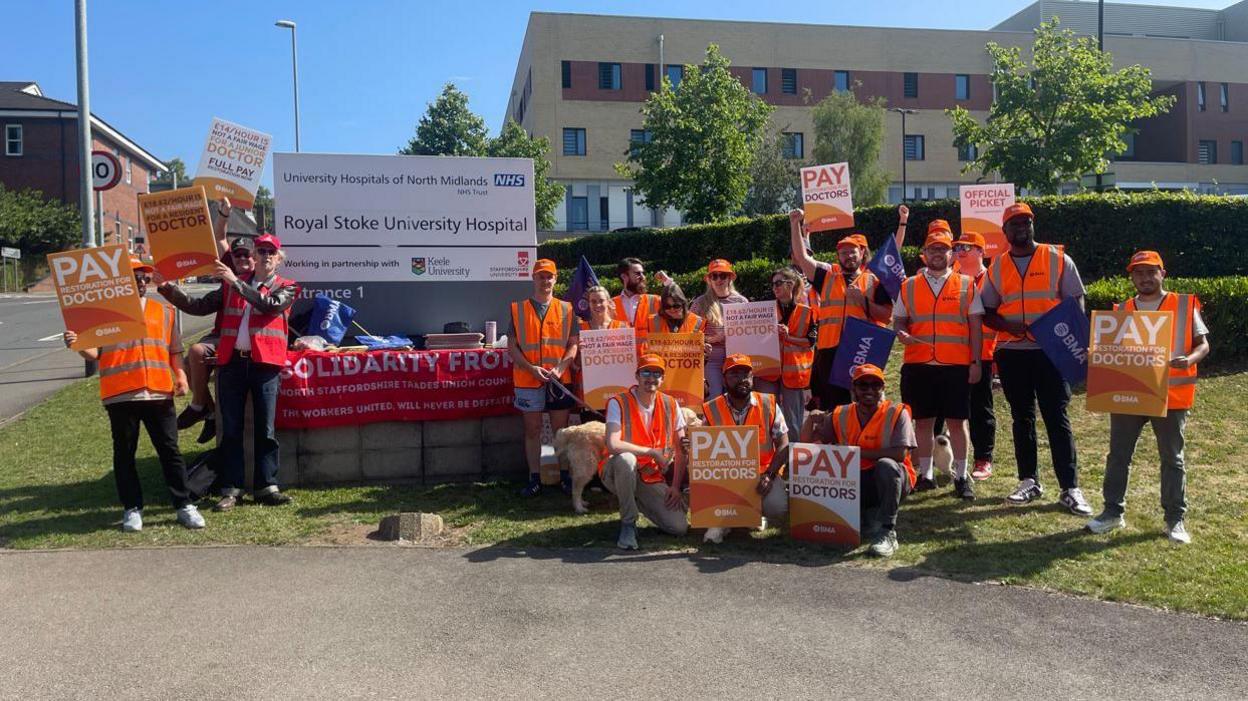
About 20 BMA members joined industrial action at the Royal Stoke University Hospital
Health Secretary Wes Streeting had argued the strike was "unreasonable" after pay rises in recent years and said while it was not possible to eliminate disruption to services, it was being kept to a minimum.
The NHS wants to keep non-urgent services running the walkout, with patients urged to attend appointments unless told they are cancelled.
NHS England said GP surgeries were open as usual, and urgent care and A&E would continue to be available, alongside NHS 111.
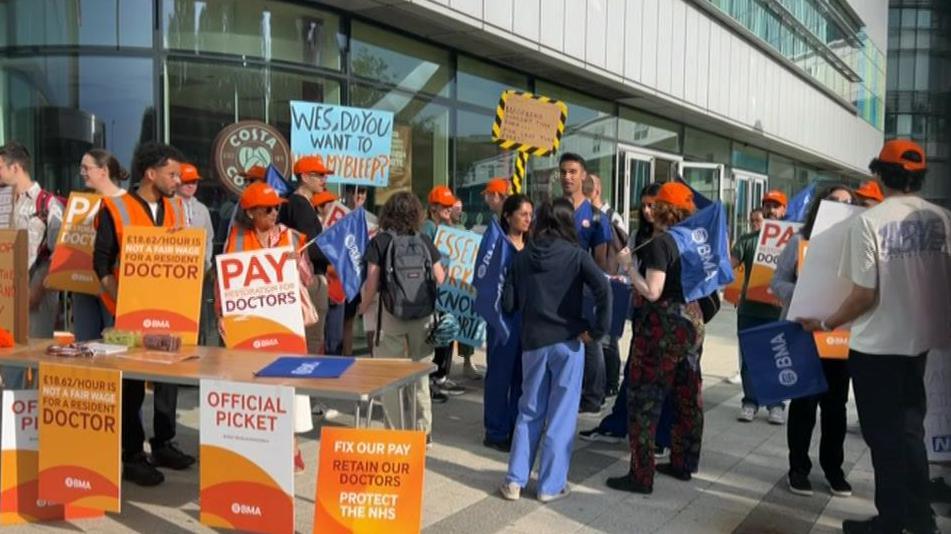
Resident doctors began a five-day walkout over pay on Friday morning
NHS Herefordshire and Worcestershire said services would be "significantly impacted" and the strike would result in "serious challenges".
Dr Jules Walton, chief medical officer at Worcestershire Acute Hospitals NHS Trust, said the priority was to protect the safety of patients and appointments would not be cancelled unless "absolutely unavoidable".
"Our emergency department will be working exceptionally hard prioritising patients with life or limb threatening injury and illness to provide lifesaving care for those patients in the greatest need," she added.
A spokesperson for The Shrewsbury and Telford Hospital NHS Trust urged residents to continue to seek treatment, including by visiting minor injury units and emergency departments at the Princess Royal Hospital and the Royal Shrewsbury Hospital.
Dr Lorna Clarson, chief medical officer at NHS Shropshire, Telford and Wrekin, added: "Healthcare leaders across Shropshire, Telford and Wrekin are asking residents to use services wisely during this time and to take steps to stay safe and well, as much as possible.
"This is to ensure that emergency care remains available for those who need it most. If you feel you require urgent or emergency care, we encourage you to seek the help you need."
Disruption 'inevitable'
University Hospitals of North Midlands NHS Trust (UHNM) apologised for any delays experienced by patients.
Dr Simon Constable, UHNM chief executive, said: "We would like to reassure our patients that, despite industrial action, urgent and emergency services will continue to operate and we have done all we can to maintain as much planned care as possible.
"It is vital that anyone who is seriously ill or injured, or whose life may be at risk, continues to seek medical help as normal.
"Every effort has and will continue to be made to minimise the impact of strike action but it is inevitable there will be some disruption."
Get in touch
Tell us which stories we should cover in Wolverhampton
Follow BBC Wolverhampton & Black Country on BBC Sounds, Facebook, external, X, external and Instagram, external.
- Published24 July
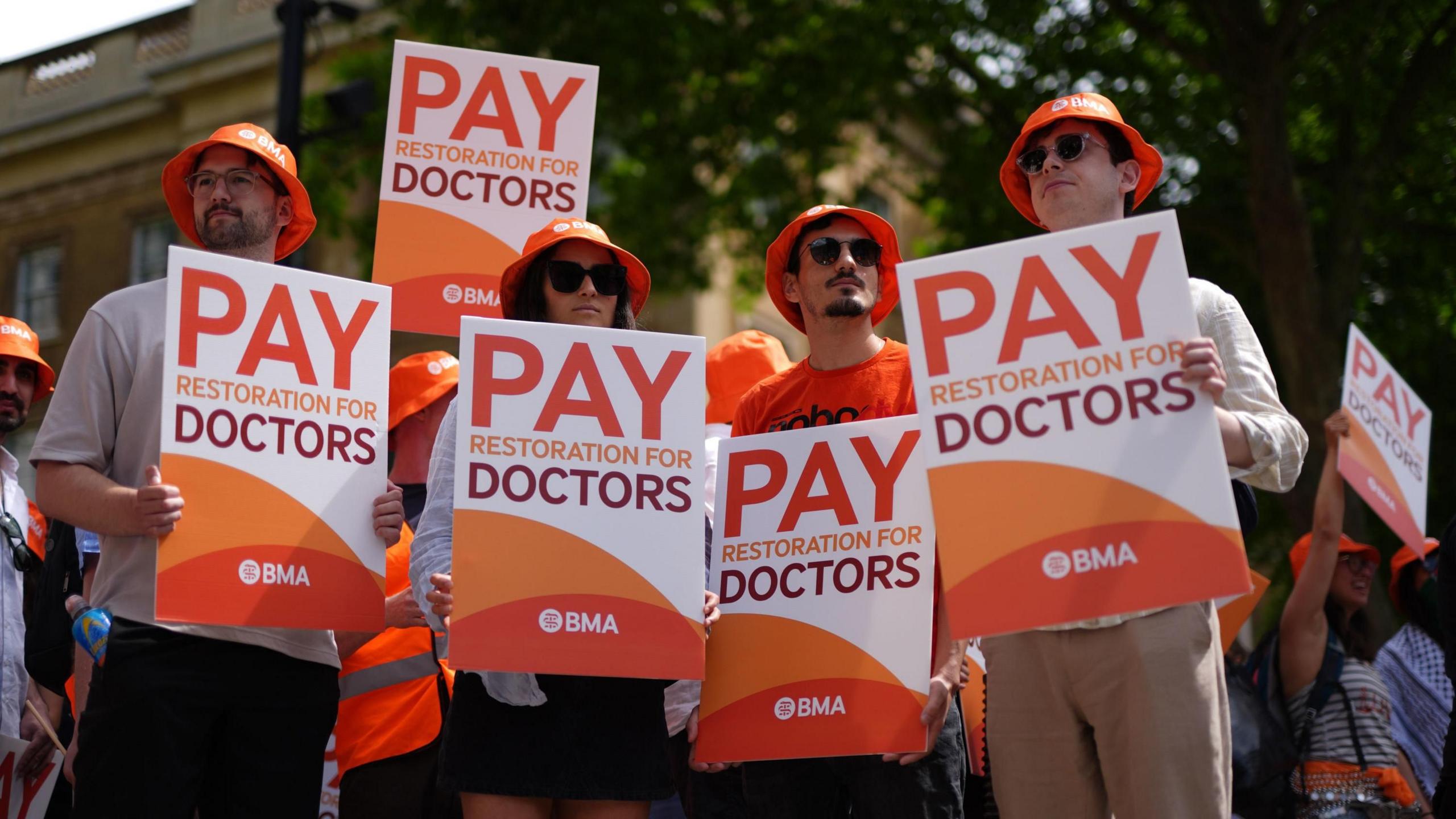
- Published25 July
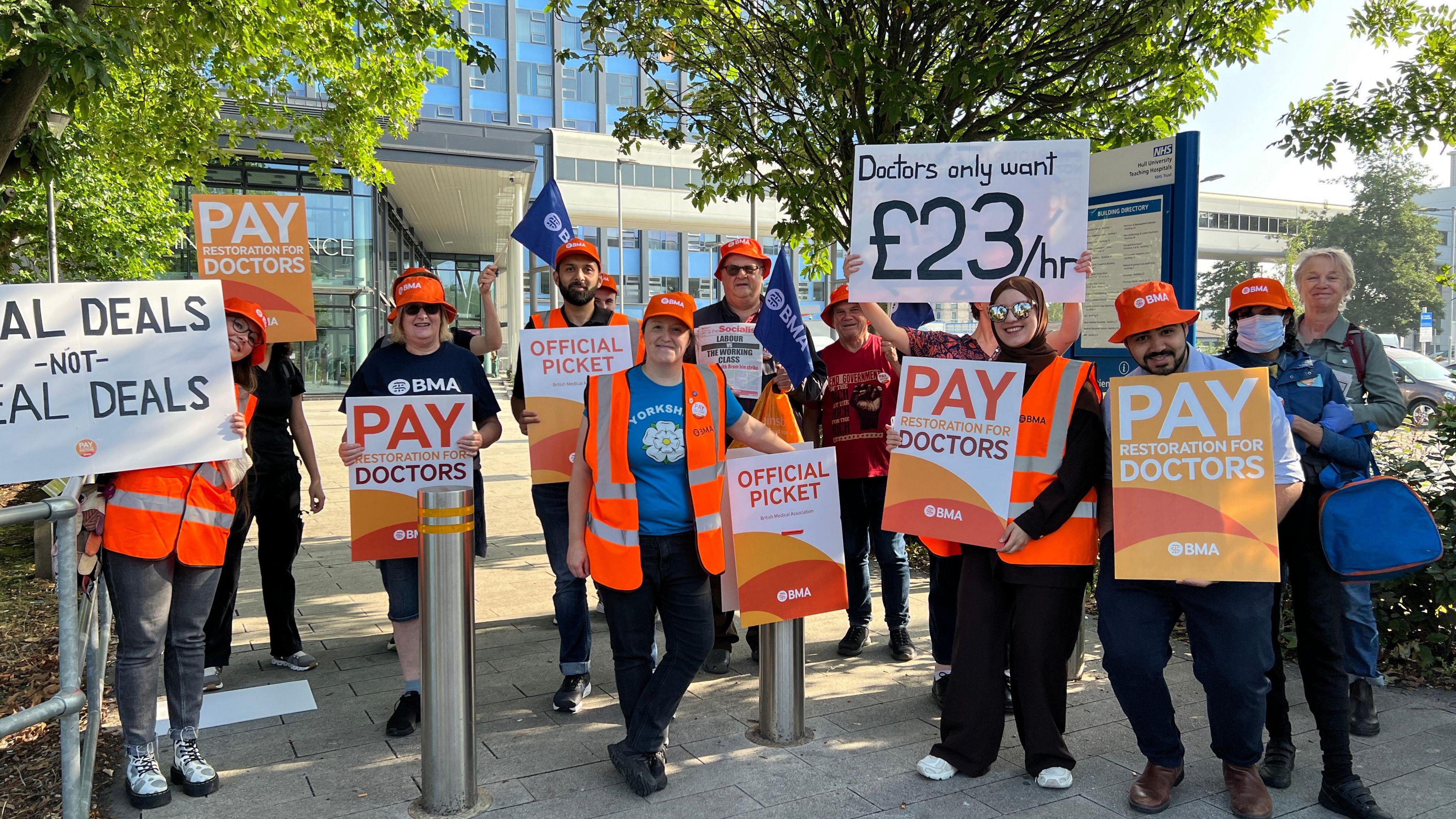
- Published24 July

- Published18 September 2024
